Browse
Culture And Society
AAP Global Engagement Fund Support Arts-Based Youth Research and Engagement
When photographer and educator Prof. Peter Glendinning of Michigan State University returned to South Africa this September, his goal went far beyond presenting artwork. Supported by the Alliance for African Partnership (AAP) Global Engagement Fund (GEF), Glendinning traveled to Johannesburg and Cape Town to advance a collaborative, arts-driven research initiative that is reshaping how youth experiences are documented and understood across Africa. For years, Glendinning has been developing Attached to the Soil, a project that pairs portrait photography with metaphor and narrative to explore young people’s aspirations, challenges, and identities. What began as a 2019 Fulbright project in South Africa has evolved—through sustained partnership—into a model for how the arts can generate meaningful social insight. This work aligns directly with AAP’s culture & society priority area, which supports projects that use cultural expression to address complex societal issues.
Strengthening a Continental Research Partnership
During his visit, Glendinning met with partners at University of Pretoria, one of AAP’s 12 member institutions, including Prof. Zitha Mokomane, a professor in the Department of Sociology and Deputy Dean for Teaching and Learning in the Faculty of Humanities, who has been conducting sociological analysis of the project’s original youth-created images and stories. The findings point to recurring themes: belonging, hope, fear, opportunity, and the persistence of socio-economic barriers.
With support from the Global Engagement Fund, the partners spent their time together outlining the next phase of the work—a potential 2027 pan-African expansion that could engage youth from multiple institutions and countries. The goal is to create one of the most comprehensive collections of narrative and visual data on African youth aspirations to date.
“The dataset we envision would allow us to compare experiences across countries, contexts, and cultures, using the arts as a bridge,” Glendinning explained. The in-person meetings made possible by the GEF award were essential for refining the research design, establishing a shared methodological framework, and preparing for future proposal development.
Cultural Institutions as Crucial Partners
Glendinning’s work emphasizes not only the creation of new cultural materials but also the preservation of Africa’s photographic heritage. While in Johannesburg, he met with leaders at the Bensusan Museum of Photography to advance efforts to secure funding for preserving its internationally significant collection of historic photographic equipment and images. He also held discussions at the Nelson Mandela Foundation, which held an 8-month exhibit of the project in 2023, exploring how youth-generated narratives from Attached to the Soil could contribute to public memory and civic learning through the foundation’s ongoing partnership. These engagements expand the project’s reach beyond academia and into community and heritage spaces—an approach deeply aligned with AAP’s focus on research for broader impact.
Festival Participation Amplifies Youth Perspectives
Glendinning’s work also reached public audiences during the inaugural Cape Town Photography Festival, where Attached to the Soil opened as an exhibition at the Simon’s Town Museum. The festival setting provided a platform for deeper conversation around the project’s themes. During a public dialogue, Glendinning and Malissa Louw, one of the original participants, spoke about the creative process and the realities behind the images—drawing attention to the power of youth storytelling as a form of social documentation.
He also led two workshops: a digital photography master-class for community members and a session for 40 students at the Cape Peninsula University of Technology. Both emphasized photography as a tool for reflection, empowerment, and evidence-gathering—illustrating how artistic training can support community insight and youth leadership.
A Model for Arts-Driven, Partnership-Based Research
Following the festival, Glendinning continued planning with Prof. Mokomane during her September visit to Michigan State University, which was also supported by the GEF. Together, they are refining the concept for the multi-country expansion and identifying ways for AAP partners to contribute to the next phase.
For AAP, Glendinning’s and project and his partnership with Mokomane exemplify the role arts and culture can play in addressing societal challenges: by elevating local narratives, strengthening community connections, and deepening understanding across diverse contexts. The Global Engagement Fund is central to this impact—making it possible for faculty like Glendinning to build the relationships and shared vision that long-term, equitable partnerships require.
As plans move forward, Attached to the Soil will offer youth across the continent the chance to tell their stories—and help researchers, educators, and communities better understand the world through their eyes.
By:
Baboki Gaolaolwe-Major
Monday, Dec 15, 2025
CULTURE AND SOCIETY
+2
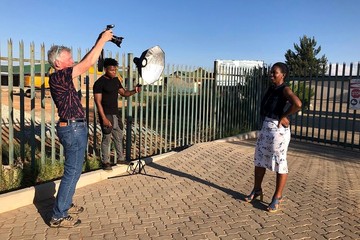
Leave a comment
AAP Steps Up Its Global Footprint at Falling Walls 2025
The Alliance for African Partnership (AAP) strengthened its global visibility this year with a significantly expanded presence at the Falling Walls Summit in Berlin, signaling a new phase in Africa’s engagement with one of the world’s leading platforms for science, innovation, and societal impact.
The momentum follows a fast-growing collaboration between AAP and the Falling Walls Foundation, an alliance that has already produced tangible results. LUANAR in Malawi became the first institution in the consortium to launch a combined Falling Walls Engage and Lab, followed by the University of Botswana, which introduced the Gaborone Lab in 2025 and is preparing to roll out the Engage program in 2026. For AAP, these developments are more than individual wins: they mark the beginning of a wider rollout across the consortium, designed to strengthen research communication and create a more connected science engagement ecosystem across Africa.
At this year’s Summit, AAP member universities made their strongest showing yet. Lab winners from LUANAR and the University of Botswana took the stage in Berlin, showcasing African innovation to an international audience of scientists, investors, policymakers, and global media. Senior leaders from across the consortium also attended, led by Michigan State University’s Vice-Provost for International Studies and Programs, Professor Titus Awokuse.
During the delegation meeting with Falling Walls’ Executive Director, Andreas Kosmider, there was clear enthusiasm about the trajectory of the partnership. Discussions focused on deepening African participation in next year’s Summit and widening the circle of collaborators to include government ministries, policymakers, and funding agencies, an effort aimed at opening new channels for African–German cooperation.
For AAP, the stakes are high. Strengthening research communication equips young African scientists to tell their stories compellingly, improving public understanding and increasing the influence of research on policy. The Labs, meanwhile, function as early-stage innovation pipelines, giving African entrepreneurs exposure, mentorship, and a global platform for emerging ideas. The partnership also enhances institutional visibility, positioning African universities as active players in global science diplomacy.
Planning has already begun for next year’s Summit, with AAP leaders working on a coordinated roadmap to ensure a more visible and more diverse African presence in 2026. The goal is not simply to attend, but to shape the agenda by bringing African voices, research, and innovation to the centre of the global conversation.
As AAP expands its Falling Walls footprint, the partnership is beginning to look less like a program and more like an ecosystem-building catalyst. It is strengthening the consortium internally, opening new possibilities externally, and giving African researchers and innovators a much-needed global stage. And if the early signs are anything to go by, the walls separating African science from global visibility are starting to crack, making space for a new era of collaboration and opportunity.
By:
Baboki Gaolaolwe-Major
Thursday, Dec 11, 2025
CULTURE AND SOCIETY
+3
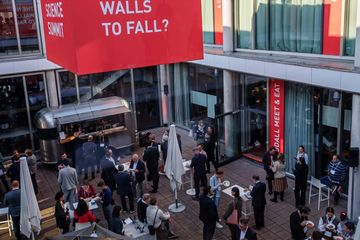
Leave a comment
Culture in collaboration: repurposing folklore for youth empowerment
Africa, particularly Nigeria, has a teeming young population who attempt to creatively navigate rapidly shifting identities within an unstable economy. For them, storytelling becomes a powerful tool through which sense is made of their place in the world. My research on folklore reimagination interrogates how traditional narratives are transformed into contemporary artistic endeavour that reflect the social realities of the youth. Folklore reimagination thus becomes an avenue for skill acquisition and empowerment in a society plagued with mismanaged resources and youth unemployment. By perceiving folklore as a living resource rather than a mere relic of the past, my research attempts to revive cultural heritage into digital content for the screen, constituting a source of self-employment for young creatives. In addition to addressing SDG number 8 – decent work and economic growth, this research fosters partnerships between culture and performance, youth and communities, tradition and modernity, and between local narratives and a global audience, offering education opportunities and reduced poverty. The research goal is to develop a toolkit which serves as both a learning and teaching aid for students and teachers of creative writing, further resonating with SDG number 4. Besides offering a platform for creativity and skills acquisition leading to self-employment, this research provides a model for a cultural engagement that is rooted in heritage preservation, shared creativity, collaboration and mutual respect. The research, which began in 2022, is divided into three distinct phases – toolkit draft, evaluation and update. Phase one involves the draft of the toolkit, which is divided into 5 parts and provides ethical insights and guidelines on working with folklore from the point of collection until reimagination. Offering mostly a theoretical guide, this phase is completed, and phase two is in progress. Phase two demands working closely with student writers to test the toolkit draft. Through a close collaboration with my students, aspects of the toolkit are currently being tested for effectiveness. Through feedback provided by the students, the toolkit will be updated with practical guides and sample scenarios. Further updates are expected following curated workshops, writers’ conference and creative labs. The creation of this toolkit resonates with the theme for this newsletter - art in partnership. Currently under the mentorship of Dr Jeff Wray of Michigan State University and Professor Chinenye Amonyeze of University of Nigeria, this research highlights that art, generally and folklore in particular, is not just a memory of set time in history, but a flexible material that can be reshaped into performances and creative narratives with social and economic value, while fostering partnerships driven by art. Folklore reimagination is, at its heart, an art of cultural partnership which depends on collaborations between researchers and creatives. By centring youths as creative agents, it leverages heritage to build skills, empowerment and self-employment. In this partnership, cultural memory is perceived and treated as a resource for innovation and economic growth. This art of partnership is therefore a sustainable one built on shared stories – stories that bear identities shaped by the past, present and future.
By:
Baboki Gaolaolwe-Major
Thursday, Dec 11, 2025
CULTURE AND SOCIETY
+1
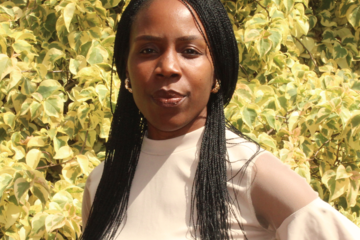
Leave a comment
2025 AAP Consortium Delegates Welcomed in Classic Warm Heart of Africa Style
Delegates to the AAP Consortium Meeting in Malawi were welcomed with a vibrant cultural reception on the afternoon of Sunday, June 8, 2025, at the Bingu International Convention Centre (BICC) Amphitheatre. The event offered a rich immersion into Malawi’s cultural heritage, from traditional dances that transported participants across the country, to rhythmic music echoing tales of generations past, complemented by a curated selection of local foods and beverages. Set in the warmth of Malawian hospitality, the reception also featured interactive activities celebrating African cultural diversity through language games and cultural lightning talks.
Reception Planning
The reception was carefully designed to celebrate cultural identity and diversity while ensuring an enjoyable and memorable experience for all attendees. Preparations began with identifying local performance groups whose artistry authentically reflects the Malawian cultural brand. Consultations with selected groups ensured a thoughtful balance of energetic and soothing performances suited to a diverse audience, ultimately creating a programme that offered a cultural tour of Malawi through music and dance. Organisers also coordinated with the hosting hotel to incorporate Malawian cuisine on the cocktail menu, showcasing the country’s culinary heritage. With the performances and menu in place, the reception hosts curated additional interactive activities to promote cultural exchange and engagement among delegates.
Performances
The Malawi National Dance Ensemble, popularly known as the Kwacha Cultural Troupe, headlined the afternoon. Established in 1987, the renowned 30-member troupe delivered a captivating sequence of traditional dances representing Malawi’s regions. Their repertoire included Beni, Chimtali, Chisamba, Chiterera, Mjedza, Malipenga, Ingoma, Mganda, Vimbuza, and Gule Wamkulu—the iconic masked dance of the Chewa people. Adding to the ambiance, Owen Mbilizi and his team offered a rich musical experience featuring original compositions and Malawian classics, blending skilled instrumentation with harmonious vocals. Delegates responded with enthusiastic applause and cheers throughout the performances.
Local Foods
Participants enjoyed an assortment of local delicacies, including mandazi, zitumbuwa (banana fritters), malambe (baobab) juice, and thobwa (sweet beer), alongside familiar continental snacks. The refreshment break provided an informal space for delegates to mingle, exchange reflections, and deepen their appreciation of the cultural showcase.
Significance
The cultural reception successfully highlighted Malawi’s artistic and culinary traditions while fostering a shared appreciation for cultural diversity among delegates. It was an afternoon filled with warmth, laughter, and a strong sense of community, the perfect icebreaker for the week’s engagements.
By:
Baboki Gaolaolwe-Major
Tuesday, Dec 9, 2025
CULTURE AND SOCIETY
+1
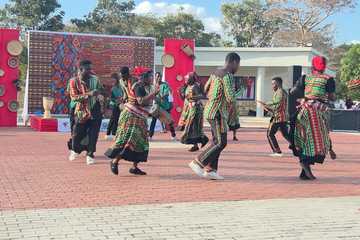
Leave a comment
From Lens to Learning: Alex Mkwizu’s Transformative MSU Journey
When Ibn Battutah said, “Traveling—it leaves you speechless, then turns you into a storyteller,” in his famous volumes Travels of Ibn Battutah, little did I know how profoundly this wisdom would echo throughout my eight-day experience at Michigan State University (MSU), East Lansing. I had the honor of attending as the overall winner of the InVision Africa Photography Competition, curated and sponsored by the Alliance for African Partnerships. This MSU initiative champions collaboration with African universities in art, culture, language, and other fields.
My time at MSU was eye-opening, filled with warm introductions to professors and artists. I met Professor Peter Glendinning from the Kresge Art Center, whose expertise in photography was inspiring; Professor Susan Wyche, who specializes in Human-Computer Interaction (HCI); and Mr Vadu Rodrigues, a Master of Fine Arts candidate, from whom I learned how his personal influences shaped his narrative and storytelling in photography. I also met many other colleagues, learning from their diverse experiences and creative processes.
These key encounters with experts and practitioners across different artistic disciplines opened doors for me to continue exploring, collaborating, and discovering new opportunities as a multidisciplinary creative artist passionate about the intersection of data, technology, and human-centered storytelling.
One of the most memorable encounters was with Professor Peter Glendinning and his body of work Attached to the Soil, a brilliant photographic project consisting of fifty portraits, oral history-based stories, and metaphoric representations of South African youth. He shared fascinating insights into his process, including an old, rare tool he once used to achieve a stroboscopic effect before the era of advanced cameras and editing software. What stood out most to me was that each photograph’s story was told from the perspective of the subject themselves, a powerful approach to narrative photography.
Another remarkable interaction was with Mr. Vadu Rodrigues and his artistic initiative Positive Africa, which seeks to challenge negative and biased narratives about Africa through photography and other art forms. Spending time with him in his studio was deeply insightful. I admired his practice of carrying a small notebook to document daily experiences and visual ideas that later influence his creative work. Observing his process from conceptualization to a finished art piece was a masterclass in intentional storytelling.
The culmination of this experience profoundly influenced my growth as a creative technologist and multidisciplinary artist. It also opened new doors for collaboration, one of which came through the MSU Museum CoLab Studio. I learned about a call for artists to create a piece exploring AI singularity in all its forms. Having subscribed to the studio’s newsletter, I received the announcement and decided to apply with a concept for a Virtual Reality immersive experience: a VR tribunal where sentient AIs bring cases against humans. Participants take the role of the defendant, while a generative AI judge, UbuntuBot, presides, modelled on African communal justice systems. The project merges storytelling, ethics, and digital futures.
As the old proverb goes, “Luck is when opportunity meets preparedness.” Fortunately, I was selected as one of the artists to collaborate with the MSU CoLab Studio, supported by a seed grant to bring this piece to life and exhibit it at the MSU Museum.
While the journey has only just begun with MSU Art Community, the experience with the Invision Africa Photography Competition and the exposure and connections made within MSU’s artistic community have left a lasting and transformative impact. It will continue to shape my creative path and remain a defining part of my artistic journey.
By:
Baboki Gaolaolwe-Major
Tuesday, Dec 9, 2025
CULTURE AND SOCIETY
+1
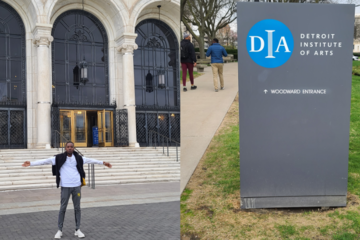
Leave a comment
Celebrating The Role of Art and Creativity in Shaping Global Partnerships
Photo by: Cris Dopher.
The arts represent the most imaginative and creative form of expression, integral to the civilizational progress of communities worldwide. In Uganda, an East African country where I originate, the arts are embodied and lived through music, dance, theatre, poetry, storytelling, folktales, and other forms of artistic engagement. The cultural, historical, social, and political meanings are etched in the art forms of the people. The arts are evolutionary and revolutionary, depicting the changes and continuities, and instigating shifts in the lived experiences of communities.
The arts have demonstrated their value in fostering community transformation across histories and territories. In Africa, the role of the arts has evolved in tandem with sociocultural, political, and economic changes in communities. The arts have offered platforms to sensitize communities around ever-emerging challenges, such as disease, climate change, conflicts, forced migration, gender-based violence, poverty, and cultural differences, among others. The functions of the arts have transcended stage performances and entertainment. Communities have deployed their creative and artistic potential to explore local solutions to prevailing problems. Within international development discourse on Africa, there is talk about ‘Africa finding local solutions to African problems’. Arts-oriented interventions that communities have applied and sustained offer a rubric on how communities in Africa can develop and implement sustainable and cost-effective solutions to local challenges.
The migratory and borderless natures of the creative arts, and their distinctiveness as a universal language, position them strategically to mediate differences, heal broken communities, quell tensions, and pluralize perspectives. The transnational and transcultural nature of the creative arts is evident in how they are constituted by cross-pollination of diverse cultural traditions, stories, and orthodoxies. The art forms are reinvented and reimagined at the intersection of other existing artistic practices. The aspect of embodiment that gives the arts their true meaning and essence centers people, as bearers of practices, meanings, and knowledge.
The global flow of art forms stems from local innovations. The being of the global dimension of the creative arts is rooted in their local value. Art proliferates by diffusion. The notion of art being born of people’s imaginaries enables its adaptation, assimilation, transcendence, and permeation across localities and contexts. Across Africa, the Black Diaspora, and global indigeneity, the commonalities between the arts demonstrate their universal reach, underscoring histories of migration, cultural connections, and intercultural interfaces.
Scholarship, practice, and research are media through which the arts have found expressions in transboundary contexts. In the realm of scholarship, collaborative research in the creative arts has increased, generating rich and diverse knowledge that has improved the human condition. The mobility of scholars and researchers between cultures and nationalities has augmented the exchange of expertise and circulation of artistic and cultural ideas and practices.
My current tenure as an African Futures Fellow at Michigan State University under the auspices of the Alliance for African Fellowship (AAP) is testimony to how the creative arts and artists can support global partnerships through scholarship and research. As a dance studies scholar at Makerere University in Uganda, East Africa, the program has supported me to connect with scholars at MSU and the US; co-write articles for publications; present at conferences; collaborate on artistic works with communities; and partner with researchers on ideation, incubation, writing, and submission of research grant ideas. Such engagements have facilitated the convergence of ideas, cultures, and people. My story represents a myriad of scholars who are leveraging the scholarly prowess of the creative arts to dissolve boundaries and dismantle barriers.
The arts have accelerated global partnerships through joint performances and collaborative creative processes. Worldwide, concerts, festivals, competitions, showcases, and productions have facilitated exchanges between artists, communities, artistic works, and audiences, and have supported the mobilization of resources through fundraising to care for those in need. The arts have been the heartbeat of globalization. Through exposure to different artistic forms, communities have peeked into cultures beyond their own. The creative arts carry a unique ability to communicate across generations, demographics, cultures, and geographies. Communities across the globe have united through the creative arts to draw attention to and amplify the voices of the oppressed.
The emergence of innovative technologies and platforms has empowered creatives worldwide to access wider audiences and listenership. Technology has democratized access and consumption of creative artworks globally. For Africa, the innovative platforms have enabled people to tell their own stories and confront stereotypical views through artistic and cultural products. Global business collaborations have emerged, resulting from the potential for the creative arts to circulate as commercially valuable products.
The creative arts possess inherent power to unite people across divides. As the world confronts challenges of conflicts, climate change, food insecurity, natural disasters, disease, social injustices, forced labour, and human trafficking, among others, the arts will continue to take center stage as strategic tools through which global communities can partner to find solutions to these problems. The creative arts have always been the heart that gives and receives.
By:
Baboki Gaolaolwe-Major
Thursday, Dec 11, 2025
CULTURE AND SOCIETY
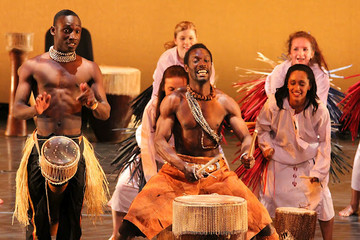
Leave a comment
Call for Book Proposals: Yorùbá Worlds, New Book Series Edited by Toyin Falola
The University of Wisconsin Press is pleased to announce the launch of a new book series, Yorùbá Worlds, edited by Toyin Falola. Publishing innovative book-length works and privileging Yorùbá voices, this multidisciplinary series is intended to answer urgent calls to decentralize colonial narratives of Africa and its diaspora and elevate Indigenous knowledge systems, oral histories, and community-centered approaches.
“The long and diverse history of the Yorùbá people, from precolonial times to today, included notable achievements in political systems, economic ties, cultural innovations, multireligious interactions, and global continuities,” says series editor Toyin Falola. “This series highlights Yorùbá voices and knowledge systems, focusing on agency and communities in both Africa and the diaspora, to deepen understanding of ongoing developments and potential related to identity, spirituality, decolonization, and transnationalism. I am excited about the opportunity to showcase and curate a wide range of innovative, cutting-edge, and multidisciplinary scholarship that offers new insights into the history, cultures, and intellectual contributions of what is perhaps Africa’s most significant and most widely dispersed group, the Yorùbá.”
The Yorùbá people have a long history of producing remarkable cultural forms, intellectual traditions, and influential historical narratives. The history of Yorùbá civilization is exemplified by precolonial urbanized city-states such as Ilé-Ifẹ̀, Ọ̀yọ́, and Ibadan, each of which had administrative structures in place. As Yorùbá people dispersed globally, their religious beliefs, languages, and cultures were foundational to forming Afro-diasporic identity in Brazil, Cuba, Trinidad, Haiti, and the United States. Yorùbá legacy, both within the African continent and among members of the global diaspora, has intensified in the contemporary period, as seen in the vibrancy of the religious expressions of Santeria and Candomblé, the explosion of Afrobeats, Yorùbá films, and transnational repatriation projects, among others.
Yorùbá Worlds is a multidisciplinary series that aims to showcase this vibrant legacy by compiling various perspectives. In addition to rigorous analyses of Yorùbá contributions to global intellectual, political, and cultural histories, the series will collapse some distance between academic inquiry and the wider world. The series will also be essential for understanding how African epistemologies continue to shape contemporary conversations about identity, spirituality, decolonization, and transnationalism.
Editor in chief Dan Crissman notes, “The University of Wisconsin Press is a recognized leader in publishing groundbreaking and essential work in African studies. We are very pleased to partner with Dr. Falola to shine a spotlight on Yorùbá history and culture.”
Series editor Toyin Falola is Distinguished Teaching Professor and Jacob and Frances Sanger Mossiker Chair in the Humanities at the University of Texas at Austin. Falola is the author or editor of more than 150 books on African history, politics, and society. He is the recipient of twenty-eight honorary doctorates from around the world as well as more than forty lifetime achievement awards.
The series advisory board includes Olufunke Adeboye (University of Lagos), Akintunde Akinyemi (University of Florida at Gainesville), Andrew Apter (University of California, Los Angeles), Matt D. Childs (University of South Carolina),Henry Lovejoy (University of Colorado Boulder), Akin Ogundiran (Northwestern University), Bola Sotunsa (Babcock University), Aribidesi Usman (Arizona State University), Olufemi Vaughan (Amherst College), and John Thabiti Willis(Grinnell College).
The first book in the series, Joseph Odùmósù’s Book of Healing, edited and translated by Michael Ọládẹ̀jọ Afọláyan and Helen Tilley, will be published in January 2026.
For more information about submissions, please contact Dan Crissman, editor in chief, at dcrissman@wisc.edu. For other inquiries, please contact the series editor, Toyin Falola, at toyinfalola@austin.utexas.edu.
About the University of Wisconsin Press
The University of Wisconsin Press is a not-for-profit publisher of books and journals. With more than 1,500 titles and 8,000 peer-reviewed articles in print, its mission embodies the Wisconsin Idea by publishing work of distinction that serves the people of Wisconsin and the world.
Contact Information
Dan Crissman, Editor in Chief, University of Wisconsin Press
Contact Email
dcrissman@wisc.edu
By:
Aaron Dorner
Friday, Nov 21, 2025
CULTURE AND SOCIETY
No Preview Available
Leave a comment
African Futures Cohort 5 Arrives at MSU
Alliance for African Partnership (AAP), a consortium of ten leading African universities, Michigan State University (MSU), and a network of African research institutes, is excited to welcome the fifth cohort of the African Futures Research Leadership Program to MSU for the in-person portion of the program. Each early career scholar is paired with a faculty mentor from MSU and their home institution for one year of virtual and in-person collaboration to strengthen research skills, innovations in teaching, writing of scholarly and/or policy publications, dissemination of research results and grant proposals.
A consortium-wide initiative, the African Futures program is designed to strengthen the capacity of a cadre of African researchers to return to their home institutions and become scientific leaders in their community, establish long-term partnerships with MSU faculty, co-create innovative solutions to Africa’s challenges, and in turn become trainers of the next generation of researchers.
African Futures Cohort 5: Alfdaniels Mabingo Performing Arts and Film Makerere University Home Mentor - Sylvia Antonia Nakimera Nannyonga-Tamusuza, Dept of Performing Arts and FilmMSU Mentor – Philip Effiong, Dept of English, Theater Studies & Humanities & Gianina Strother, Dept of African American and African Studies Gladys Gakenia Njoroge Pharmacy Practice and Public Health United States International University – Africa Home Mentor - Calvin A. Omolo, Dept of Pharmacy Practice and Public HealthMSU Mentor - Yuehua Cui, Dept of Statistics and Probability Seynabou Sene Plant Biology University Cheikh Anna Diop Home Mentor - Abdala Gamby Diedhiou, Dept of Plan BiologyMSU Mentor - Lisa Tiemann, Dept of Plant, Soil, and Microbial Sciences Portia T. Loeto Educational Foundations (Gender Studies Section) University of Botswana Home Mentor - Godi Mookode, Dept of SociologyMSU Mentor - Soma Chauduri, Dept of Sociology Betina Lukwambe Aquaculture Technology University of Dar es Salaam Home Mentor – Samwel Mchele Limbu, Dept of AquacultureMSU Mentor - Abigail Bennett, Dept of Fisheries and Wildlife & Maria Claudia Lopez, Dept of Community Sustainability Assilah Agigi Business Management University of PretoriaHome Mentor - Alex Antonites, Dept of Business Management MSU Mentor - Sriram Narayanan, Dept of Supply Chain Management Miriam Nthenya Kyule Agricultural Education and Extension Egerton University Home Mentor - Miriam Karwitha Charimbu, Dept of Crops, Horticulture and Soils MSU Mentor - Susan Wyche, Dept of Media and Information Studies Asha Nalunga Agribusiness and Natural Resource Economics Makerere University Home Mentor - Bernard Bashaasha, Dept of Agribusiness and Natural Resource Economics MSU Mentor - Saweda Liverpool-Tasie, Dept of Agricultural, Food, and Resource Economics
Ezinne Ezepue (participating virtually)Theatre & Film Studies University of Nigeria, Nsukka Home Mentor - Chinenye Amonyeze, Dept of Theatre & Film StudiesMSU Mentor - Jeff Wray, Dept of English
“We were extremely impressed with the quality and diversity of applications we received for this cohort of the African Futures program. We are excited to build on the successes of past cohorts and continue to evolve this program as we support the next generation of African research leaders,” said Jose Jackson-Malete, co-director of the Alliance for African Partnership.
Differing from previous cohorts, Cohort 5 is piloting a hybrid model of the African Futures program. The scholars began their work in February 2025 virtually, then will spend the fall semester at Michigan State University working closely with their MSU mentor. They will then complete the rest of their year back at their home institution, culminating in a research showcase in February 2026 to share the research they’ve done. Partnerships between mentors and mentees are expected to continue beyond the end of the program and lead to sustainable collaboration and future funding opportunities.
For more information, visit the Alliance for African Partnership website
By:
Justin Rabineau
Thursday, Sep 4, 2025
AGRI-FOOD SYSTEMS
+6
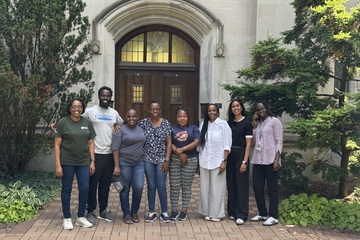
Leave a comment
Celebrating a Legacy of Vision, Dedication, and Continental Impact
We take this opportunity to honour one of our most visionary leaders, Professor Richard Mkandawire, who retires after years of exceptional service as the Director of the AAP Africa Office, as the Alliance for African Partnership (AAP) continues to grow in strength and purpose. The experience Professor Mkandawire has had with AAP has been nothing short of revolutionary. Richard was a well-known development expert and supporter of soil health who approached his work with insight, moral character, and endless enthusiasm. AAP has become a reliable forum for cooperative research, policy engagement, and capacity building as a result of his dedication to cultivating partnerships throughout Africa. He oversaw the expansion of the AAP throughout African institutions, fostering connections between policy, academia, and the public. From empowering young researchers to advocating for agricultural reform and ensuring soil health remained a top priority for food security on the continent, Richard's enthusiasm for Africa's prosperity was evident in every project he supported. Partners, mentees, and colleagues from around the world gathered at his farewell dinner, held on the last night of the AAP Consortium Meeting 2025 in Lilongwe, Malawi, to honor a man whose work has left a legacy. He was described as a leader, a mentor, and most importantly, a true servant of Africa, in the flood of tributes that poured in. Richard Mkandawire, AAP honors you. Your legacy will continue to inspire, your vision will keep guiding us, and your influence on the lives you have impacted and the organizations you have influenced will only grow. Richard, thank you. We wish you a peaceful, happy, and well-earned retirement.
By:
Baboki Gaolaolwe-Major
Thursday, Jul 10, 2025
AGRI-FOOD SYSTEMS
+2
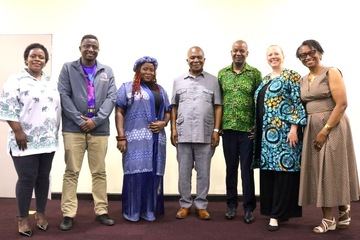
Leave a comment
AAP announces 8 new PIRA partnership awards
Alliance for African Partnership (AAP), a consortium of ten leading African universities, Michigan State University (MSU), and a network of African research institutes, is excited to announce the recipients of the 2024 Partnerships for Innovative Research in Africa (PIRA) seed funding. Each team is composed of at least one lead from an AAP African member institution and one MSU lead. Some teams also include additional partners from NGOs and/or other universities from outside of AAP’s consortium. A consortium-wide initiative, PIRA grants are a tiered funding opportunity designed to cultivate and support multidirectional and transregional research partnerships at any stage of their development, whether it be initiatives to explore and create new relationships or scale existing ones. The total amount of PIRA grants awarded in 2024 is over $500,000.
Awarded projects cover diverse disciplinary perspectives and span AAP’s seven priority areas:
Agri-food systems
Water, Energy and Environment
Culture and Society
Youth Empowerment
Education
Health and Nutrition
Science, Technology and Innovation
All projects will integrate gender, equityand and inclusion issues in all stages of the project.
This year’s winning projects include:
Towards the Implementation of Smart Villages in the Rural Communities of Taraba State in Nigeria
Research leads: Shanelle N. Foster (MSU), Chidimma Frances Igboeli (University of Nigeria, Nsukka), Mbika Mutega (University of Johannesburg), Sari Stark (University of Lapland)
Institutional partners: Michigan State University (College of Engineering), University of Nigeria, Nsukka, University of Johannesburg and University of Lapland
Funding tier: Scaling grant (up to $100,000)
Green Technology Extraction and Characterization of Bioactive Components from Edible Fruits of Vitex donania and Uvaria chamae
Research leads: Leslie D. Bourquin (MSU), Insa Seck (UCAD)
Institutional partners: Michigan State University (College of Agriculture & Natural Resources), Universite Cheikh Anta Diop
Funding tier: Planning grant (up to $50,000)
Qi Hua Fan of MSU (left) and Tabitha Amollo of Egerton University (right) working in their solar cell lab.
Develop a Partnership for Renewable Energy Research and Education
Research leads: Qi Hua Fan (MSU), Tabitha Amollo (Egerton)
Institutional partners: Michigan State University (College of Engineering), Egerton University
Funding tier: Scaling grant (up to $100,000)
Bridging the Gap: Strengthening Research, Management and Community Alliances in South Africa’s Largest Coastal Marine Protected Area
Research leads: Amber K. Peters (MSU), Els Vermeulen (UP), Grant Smith (Sharklife)
Institutional partners: Michigan State University (College of Agriculture and Natural Resources), University of Pretoria, Sharklife Conservation Group
Funding tier: Planning grant (up to $50,000)
Changing Public Attitudes and Behaviors of Buying Counterfeits through Evidence-Based Education and Awareness-Raising Campaigns in Kenya
Research leads: Saleem Alhabash (MSU), Maureen Kangu (USIU), Robi Koki Ochieng (USIU), John Akoten (Anti-Counterfeit Authority)
Institutional partners: Michigan State University (College of Communication Arts & Sciences), United States International University-Africa, Anti-Counterfeit Authority
Funding tier: Planning grant (up to $50,000)
Leveraging Tourism and Hospitality Ecosystems to Expand Youth Entrepreneurship and Empowerment in Botswana
Research leads: Karthik Namasivayam (MSU), Mokgogi Lenao (UB)
Institutional partners: Michigan State University (Broad College of Business), University of Botswana
Funding tier: Planning grant (up to $50,000)
Children attending Pre-school in Tanzania benefit from the research project of Bethany Wilinski of MSU and Subilaga M Kejo of University of Dar es Salaam.
Tucheze Pamoja: Co-Creating Feasible and Sustainable Play-based Learning Approaches in Tanzania
Research leads: Bethany Wilinski (MSU), Subilaga M Kejo (UDSM)
Institutional partners: Michigan State University (College of Education), University of Dar es Salaam
Funding tier: Scaling grant (up to $100,000)
Promoting Science Communication and Engagement through Training and Digital Media Platforms
Research leads: Susan McFarlane-Alvarez (MSU), Dikabo Mogopodi (UB)
Institutional partners: Michigan State University (College of Communication Arts and Sciences), University of Botswana
Funding tier: Planning grant (up to $50,000)
“We were extremely impressed with the quality and diversity of proposals we received for this cycle of the PIRA program. The projects that were awarded all embody AAP’s commitment to innovation, equitable partnership, and our shared vision of transforming lives in Africa and beyond,” said Amy Jamison, co-director of the Alliance for African Partnership.
A unique aspect of PIRA grants is the expectation that institutions will establish and develop equitable partnerships from conception to close out of their respective projects. These equitable partnerships will be among the research team members themselves and include relevant local stakeholders. Teams will involve these local stakeholders as appropriate throughout the project, respecting their knowledge and expertise, and taking an adaptive approach that is responsive to the local context.
We invite you to join our virtual PIRA launch and showcase event at 8 a.m., Tuesday, Feb. 25 when all of our awardees will be discussing their projects. You can register for the event on Zoom.For more information, visit the Alliance for African Partnership website.
By:
Justin Rabineau
Monday, Jan 27, 2025
AGRI-FOOD SYSTEMS
+6
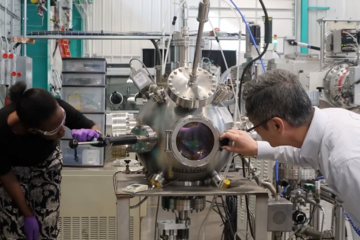
Leave a comment
Leveraging Demand Driven Research for Evidence Based Policymaking and Program Development
Recorded on June 2nd, 2023
By:
Justin Rabineau
Monday, Jan 27, 2025
CULTURE AND SOCIETY
Leave a comment
CALL FOR PAPERS, JOURNAL OF WEST AFRICAN HISTORY
CALL FOR PAPERS, JOURNAL OF WEST AFRICAN HISTORY
Journal of West African History•01/09/2025Announcement
Location
Michigan, United States
Subject Fields
African History / Studies
CALL FOR PAPERS, JOURNAL OF WEST AFRICAN HISTORY
Founding Editor-in-Chief: Nwando AchebeEditors: Saheed Aderinto, Trevor R. Getz, Toby Green, Vincent Hiribarren, Harry Nii Koney Odamtten. Book Review Editors: Mark Deets, Nana Kesse, Madina Thiam.
The Journal of West African History (JWAH) is a peer-reviewed, interdisciplinary research journal dedicated to publishing high-quality scholarship on West African history. Positioned at the forefront of new research, JWAH addresses representation gaps by fostering critical scholarship on topics such as women and gender, sexuality, slavery, oral history, popular and public culture, and religion. The editorial board invites submissions that engage diverse topical, theoretical, and methodological approaches. Committed to rigorous analysis and international in scope, JWAH offers a critical intervention in knowledge production. Each issue includes scholarly book reviews, and articles are published in English, French, and Portuguese, with African-language abstracts. JWAH is published by Michigan State University Press.
The editorial board invites scholars to submit original article-length manuscripts (not exceeding 10,000 words including endnotes) accompanied by an abstract that summarizes the argument and significance of the work. Review essays should engage the interpretation, meaning, or importance of an author’s argument for a wider scholarly audience. See what we have available for review on our Book Reviews page. Please contact our Book Review Editors at mark.deets@aucegypt.edu, madina.thiam@nyu.edu, or nkesse@clarku.edu for more information.
Manuscripts submitted to the Journal of West African History should be submitted online at https://ojs.msupress.org/index.php/JWAH/submission/wizard. In order to submit an article, you will have to create an account. The site will guide you through this process.
Contact Email
jwah@msu.edu
By:
Baboki Gaolaolwe-Major
Wednesday, Jan 15, 2025
CULTURE AND SOCIETY
No Preview Available


Leave a comment